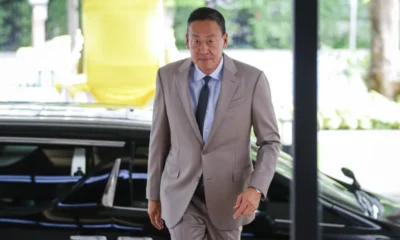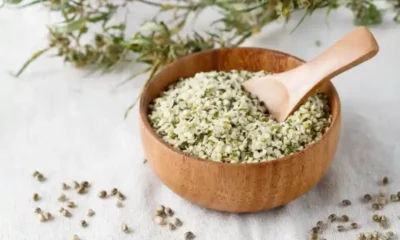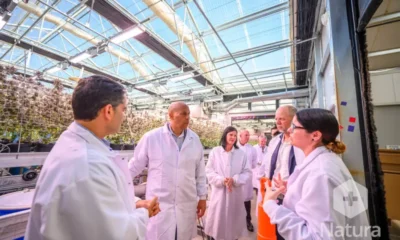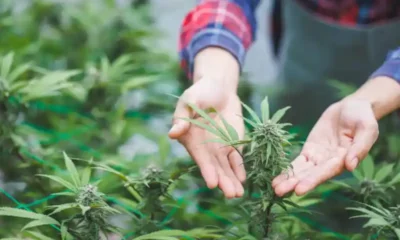Connect with us
Published
9 months agoon

Beginning Aug. 1, cannabis use and possession officially became legal in Minnesota, though retail sales may not begin until early 2025, pending the creation of a licensing and regulatory system. However, a Minnesota tribal nation is likely to begin selling cannabis later this month.
Following a vote on Friday afternoon, the White Earth Tribal Council approved a resolution allowing both tribal members and non-tribal adults over 21 years old would be able to purchase for a White Earth dispensary. Sales are set to begin sometime during the first half of August, as first reported by Minnesota Reformer.
The tribe is part of the Red Lake Nation, and members had previously voted to legalize recreational cannabis at a dispensary on the reservation in July.
Red Lake Nation is a federally recognized sovereign nation, covering 1,260 square miles, and it’s entirely owned and occupied by its members.
“In the near future, White Earth Nation will open for adult-use, recreational cannabis,” White Earth Chairman Michael Fairbanks told MPR News.
Fairbanks added that selling cannabis cultivated on the reservation was a significant economic opportunity for the tribe and that they expect to offer a high-quality product at lower prices than other dispensaries.
“It’s good not just for our constituents, but it’s good for all Minnesotans,” he told the Minnesota Reformer.
Fairbanks reportedly said that White Earth may be able to enter into agreements with other tribal nations in Minnesota in the future and to supply them with cannabis products for retail. He also confirmed that White Earth and a number of other Minnesotan tribal nations are negotiating with the state to allow tribes to operate off-reservation dispensaries.
As it pertains to medical and adult-use cannabis, Minnesota state law allows for compacts between the governor and the 11 tribal governments. Tribes are also allowed to facilitate their own cannabis operations, regardless of whether the state and tribes have entered into an agreement.
Fairbanks told MPR News that the immediate focus is to open the dispensary for sale of medical cannabis only on Monday, July 31. As planned, Red Lake Nation’s NativeCare opened on Aug. 1, the same day the state officially legalized cannabis. Now, Minnesotans can lawfully possess up to two pounds of cannabis in their homes and grow it, within legal limits. They can also legally purchase it, but only at the single store.
According to Star Tribune, there was a line of more than 100 people, many cheering and dancing, waiting to make their legal cannabis purchases more than an hour before the cannabis retailer opened its doors. The scene also included food trucks, jewelers, a live radio broadcast and celebratory fireworks after the first sale.
Red Lake decides who can visit the closed reservation, but Jerry Loud, who oversees a Red Lake economic and social well-being program, said that its members are happy to welcome others in.
“People have probably never come to Red Lake, and now they have a reason to and see what we have to offer,” he told Star Tribune. “We are truly capitalizing on this, and doing it the right way.”
Employees said that all products are cultivated, processed and packaged on the reservation with a team with more than 30 years of cultivation experience. A number of strains, including Pineapple Chunk, Hella Jelly and Nudder Budder, were on sale on opening day. A standard strain costs $50 for an eighth ounce (3.5 grams). Adults over 21 can buy up to two ounces at the dispensary, which is cash only.
Tribal Secretary Sam Strong admitted he had a hard time sleeping before the opening of the store on Monday, calling the opening a “big day” and signifying the end of the War on Drugs “that was really meant to repress minorities.”
“So it’s only fitting that the Native American tribes are participating in this industry—we’ve been harmed most by the war on drugs,” he told Star Tribune. “Now it’s time to flip that script and create an economic development venture that can help heal our community.”


Thailand Prime Minister Aims To Re-List Cannabis as Narcotic By End of 2024


Hemp-Based Food Market to Soar to Over $8B by 2029, Report Forecasts


Vermont House Representatives Pass Psychedelic-Assisted Therapy Working Group Bill


Senator Cory Booker Visits Sacramento Cannabis Giant Amid Decriminalization Push


Illinois Hemp Operators Call For Regulation Instead of Prohibition


Signatures for South Dakota Adult-Use Cannabis Initiative Submitted
